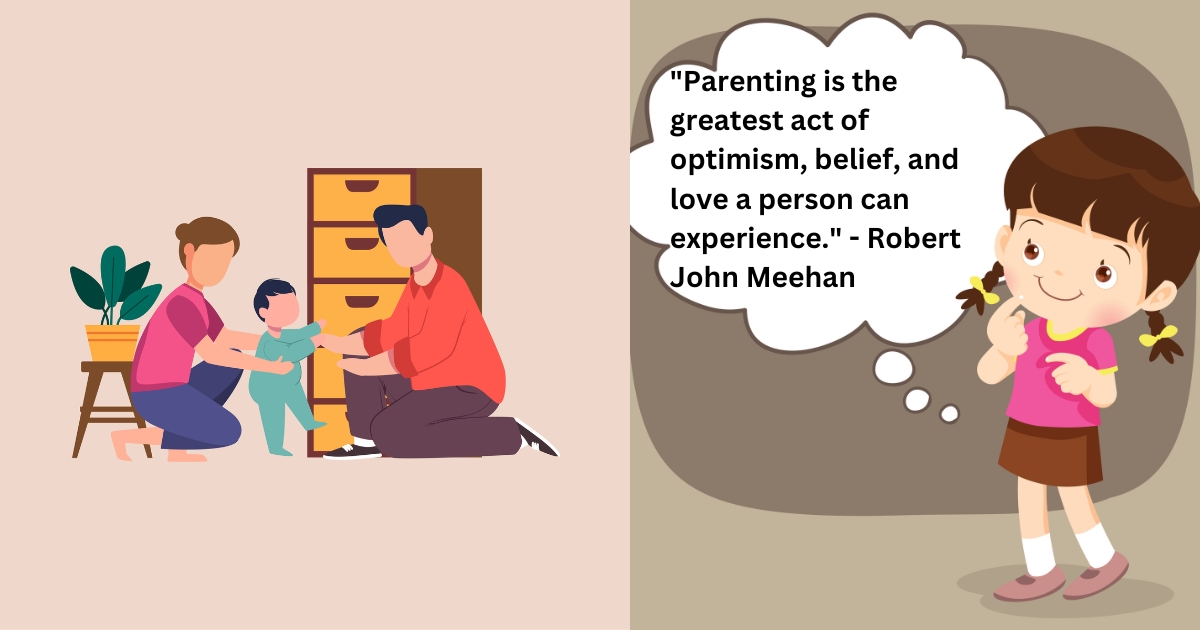Introduction
Parenting is a profound journey that shapes the future of our children. In this article we are going to create a roadmap that how to Cultivate Responsible and Mature Children through the Power of Positive Techniques. As parents, we strive to provide a loving home environment and instill values that foster responsibility and maturity. Effective parenting skills play a pivotal role in this process. In this article, we will explore various techniques of positive parenting, emphasizing the importance of family communication and positive discipline.
2. Creating a Loving Home:
The foundation of responsible and mature children lies in the atmosphere we create at home. A loving home environment fosters a sense of security, trust, and emotional well-being. It is within this nurturing space that children thrive and develops into responsible individuals. But what does it truly entail to foster a nurturing home environment?
i) Expressing Unconditional Love and Support
First and foremost, it entails wholeheartedly expressing unconditional love and unwavering support for our children. Through consistently demonstrating affection, attentively listening to their concerns, and creating a secure haven for them to freely express their emotions, we forge profound bonds between parent and child.
ii) Effective Communication
Secondly, effective communication is key. Engaging in meaningful conversations, actively listening to their thoughts and ideas, and involving them in decision-making processes cultivate their sense of responsibility and maturity. By valuing their opinions, we empower them to develop critical thinking skills and make responsible choices.
3. Positive Parenting Techniques:
Positive parenting is an approach that focuses on nurturing and guiding children rather than resorting to punishment or authoritarian control. Let’s delve into some essential positive parenting techniques that contribute to raising responsible and mature children:
i) Setting Clear Expectations: Communicate your expectations and establish consistent rules. This helps children understand boundaries and develop a sense of responsibility.
Example: Instead of saying, “Clean your room,” try saying, “Let’s keep our living space tidy by making our beds, organizing toys, and putting dirty clothes in the laundry hamper.”
Leading by Example: Children learn through observation, so it’s crucial to model the behaviors we want to see in them. Act as a role model by demonstrating responsible and mature behavior.
Example: Show them how you handle conflicts calmly and respectfully, and they will learn to do the same.
iii) Encouraging Independence: Gradually allow children to take on age-appropriate responsibilities. Encouraging independence instills a sense of accountability and self-reliance.
Example: Let your child choose their outfits and pack their school bags. This fosters decision-making skills and a sense of ownership.
4. Positive Discipline:
A positive discipline is an effective approach that emphasizes teaching, guiding, and redirecting children rather than resorting to punitive measures. It helps children understand the consequences of their actions and promotes self-discipline. Here are some key aspects of the positive discipline:
- Natural Consequences: Allowing children to experience the natural consequences of their actions provides valuable life lessons.
Example: If a child forgets their homework, allow them to face the consequences at school and help them find strategies to remember it next time.
- Time-In instead of Time-Out: Instead of isolating children, utilize “time-in” where they can reflect on their behavior and discuss it with you.
Example: Sit down with your child and calmly discuss the impact of their actions, helping them understand the importance of responsible choices.
5. Family Communication:
Effective communication within the family is the cornerstone of healthy relationships and raising responsible children. Here’s how you can enhance family communication:
- Active Listening: Practice active listening by giving your undivided attention when your child wants to share something. Show genuine interest and empathy.
Example: When your child expresses their feelings about a challenging situation, paraphrase their words to ensure understanding and provide comfort.
- Family Meetings: Regular family meetings provide a platform for open dialogue and problem-solving.
Example: Plan weekly meetings where everyone can discuss their concerns, suggest ideas, and collectively find solutions to family issues.
Conclusion:
Parenting skills that focus on nurturing responsible and mature children through the Power of Positive Techniques. responsible and mature children involve creating a loving home environment, employing positive parenting techniques, implementing positive discipline, and nurturing effective family communication. By incorporating these approaches into our daily lives, we can shape our children into responsible individuals who contribute positively to society. Remember, the journey of parenting is unique for each family, so adapt these techniques to suit your child’s needs and your family dynamics. Together, let’s build a future generation filled with responsible and mature individuals who make a difference in the world.
You can Read: Parenting Skills: Nurturing Responsible and Mature Children through the Power of Positive Techniques.



